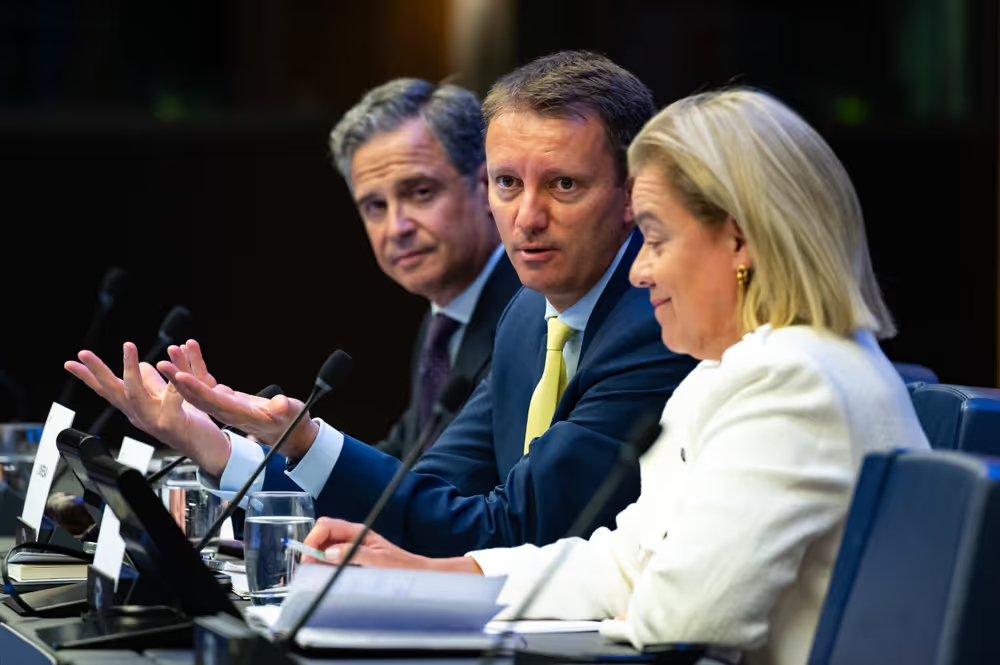The Commission’s proposal to radically centralise the next EU budget is “non-European, not transparent, and also not sufficient,” Parliament’s lead negotiators Siegfried Mureșan, and Carla Tavares said on Tuesday.
On 16 July, the Commission proposed the largest long-term EU budget in the bloc’s history, merging historically separate farming and regional spending programmes into 27 national plans.
The European Parliament has rejected both the size of the proposal, which is approximately €2 trillion, and the chaotic way it was presented.
The core objection, however, is that merging two-thirds of the budget reserved for farmers and regions into national plans runs against the EU project.
These individual plans can be “competing and diverging,” said Mureșan in a press briefing in Strasbourg on Tuesday, calling it a “re-nationalisation” that undermines the point of having a common policy.
“The non-involvement of regions is not the way forward,” added Tavares.
Mureșan also attacked the proposed governance of the European Competitiveness Fund (ECF), saying it “has to be completely rewritten.”
The ECF would merge €234 billion of defence, competitiveness, green, space, health and digital funds into a flexible cash pot under Commission control. A separate €218 billion Global Europe Fund would apply the same model to foreign policy.
These two flexible headings, along with the national plans, will undermine accountability, transparency, and Parliament’s role, according to the MEPs.
Parliament will be “unable to monitor and scrutinise” how the funds are spent, as they are all “amalgamated and stuffed into the same financial drawer,” said Tavares.
Traditionally, EU institutions negotiate a new budget framework over more than two years. The first draft of national plans is expected to be submitted by summer 2027, meaning negotiations must move at an unusual speed.
(mm)





